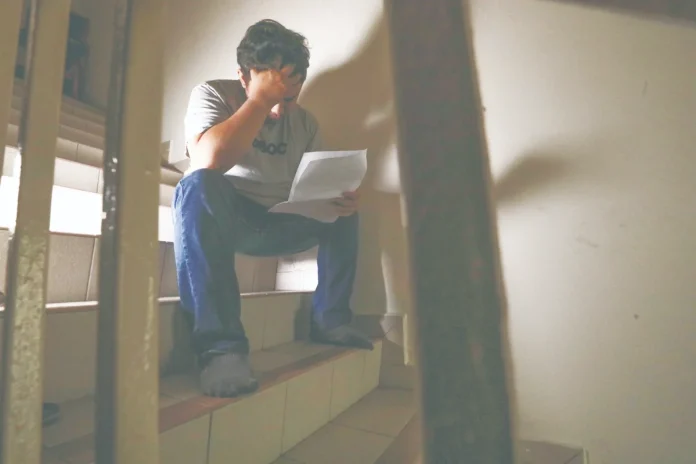A 2025 study published in Archives of Public Health reported that 25% of Malaysian adolescents experience depressive symptoms.
RECENTLY, Malaysia was shaken by multiple grim incidents in school environments: including the fatal stabbing of a 16-year-old female student by a 14-year-old schoolmate in Petaling Jaya and the arrest of four teenage boys in Kedah for the alleged gang raping of a fellow student and the circulation of nude images.
These events expose not only failures in security and supervision but also deeper, quieter crises we are facing, particularly caused by fear, trauma, isolation, shame, and for many adolescents, the risk of spiralling into depression and self-harm.
As a clinical psychologist, I believe our response should go beyond tightening security measures.
We must approach these issues with compassion, a thorough understanding of the underlying causes and a strong focus on prevention.
Most importantly, we need to provide proactive and accessible mental health support, especially for our youths.
Hidden crisis
The mental health burden among Malaysian adolescents has long been under-recognised.
Recent studies paint a troubling picture: approximately one in four Malaysian adolescents experience depression or depressive symptoms, with higher rates among girls.
A 2025 study published in Archives of Public Health reported that 25% of Malaysian adolescents experience depressive symptoms.
Similarly, a nationwide study on dietary behaviour and depression found a 26.9% prevalence of adolescent depression.
Meanwhile, a Selangor-based study among 13 and 14-year-olds found that 19% of students experienced depressive symptoms, with girls (26.3%) more affected than boys (11.7%).
Depression in teens is not just “sadness”.
It can manifest as persistent low mood; irritability; withdrawal from family, friends and society; too much sleeping or not sleeping at all; loss of interest or even self-harm.
If a child grows up feeling unsafe – whether it is from violence, betrayal or emotional neglect – or when a child goes through trauma without having their feelings truly seen, heard or held, especially in places that are supposed to be safe like schools, that pain doesn’t just disappear; it transforms.
Without genuine emotional connection and support, the weight of that pain can grow heavier, increasing the risk of trauma and depression.
And when no one notices or steps in early, that quiet suffering can deepen into despair, shaping how they see themselves and the world around them.
Role of parents, guardians, community
Teenagers are in a period of rapid physical, emotional and psychosocial change.
Parents and guardians should not be merely passive observers.
Here are key strategies and red flags that parents, caregivers and educators should be alert to:
Know the warning signs – sudden withdrawal, drop in grades, sleep disturbances, appetite changes or talk of self-harm.
Cultivate trust and open communication – listen without judgement and create safe spaces for sharing.
Monitor social media and peer circles – know the platforms they use and talk about consent and boundaries.
Encourage healthy routines – sleep, nutrition, exercise and structure can buffer stress.
Build a safety net – family time, mentors and professional help are crucial supports.
Seek professional help early – if symptoms persist or intensify, consult a psychologist or psychiatrist.
Practical recommendations
Crucial actions to prevent tragic incidents:
Believing is single-handedly the most important thing.
Gather evidence for better fact checking.
Collaborate with teachers to create a safe and transparent environment.
Introduce sex education to build awareness, respect and healthy boundaries.
Recognise internal and external symptoms – children who do not feel safe will show it internally (sadness, excessive sleeping, loss of appetite, lack of motivation) or externally (aggression, refusing to go to school, bullying).
Help parents, children and teachers to understand the legal components of cases involving sexual or violent conduct.
Screen or remain vigilant over high-risk students who may be victims or perpetrators.
Observe warning signs for both perpetrators and victims (emotional withdrawal, changes in behaviour or increased aggression)
Ask questions, never assume, and avoid giving out unverified statements.
Support victims, creating an environment that empowers them to report their cases safely and without fear.
Healing and restoring trust
After traumatic events like rape or stabbing, the ripple effects in the school community are profound.
Survivors, witnesses and even teachers may struggle with fear, guilt or anxiety.
Trauma-focused therapy and counselling can help victims process pain.
Group and peer sessions reduce isolation and promote resilience.
Schools should provide psychosocial support and improve safety policies.
Education on consent, empathy and boundaries must be integrated early.
These heartbreaking incidents are red flags not only for policing and security but for a national reckoning: Are our children safe – physically, emotionally and psychologically?
As a clinical psychologist, I urge:
Schools and education authorities to strengthen mental health services and safe reporting mechanisms.
Parents and guardians to stay vigilant, compassionate and engaged.
Policymakers to ensure sufficient funding for adolescent mental health programmes.
Youths to know they are not alone; help is available and healing is possible.
If we act with urgency, empathy and coordination, we can transform silence and fear into safety and healing, and prevent further tragedies.
Ummu Nazra Nadzam is a clinical psychologist at Ampang Puteri Specialist Hospital.
Her clinical focus includes trauma recovery, neurodevelopmental disorders, mood disorders and parenting support. She is passionate about building awareness on mental health literacy and promoting resilience in youths through compassion, education and early intervention.
Comments: letters@thesundaily.com
ALSO READ: Education minister vows full responsibility for school safety reforms








